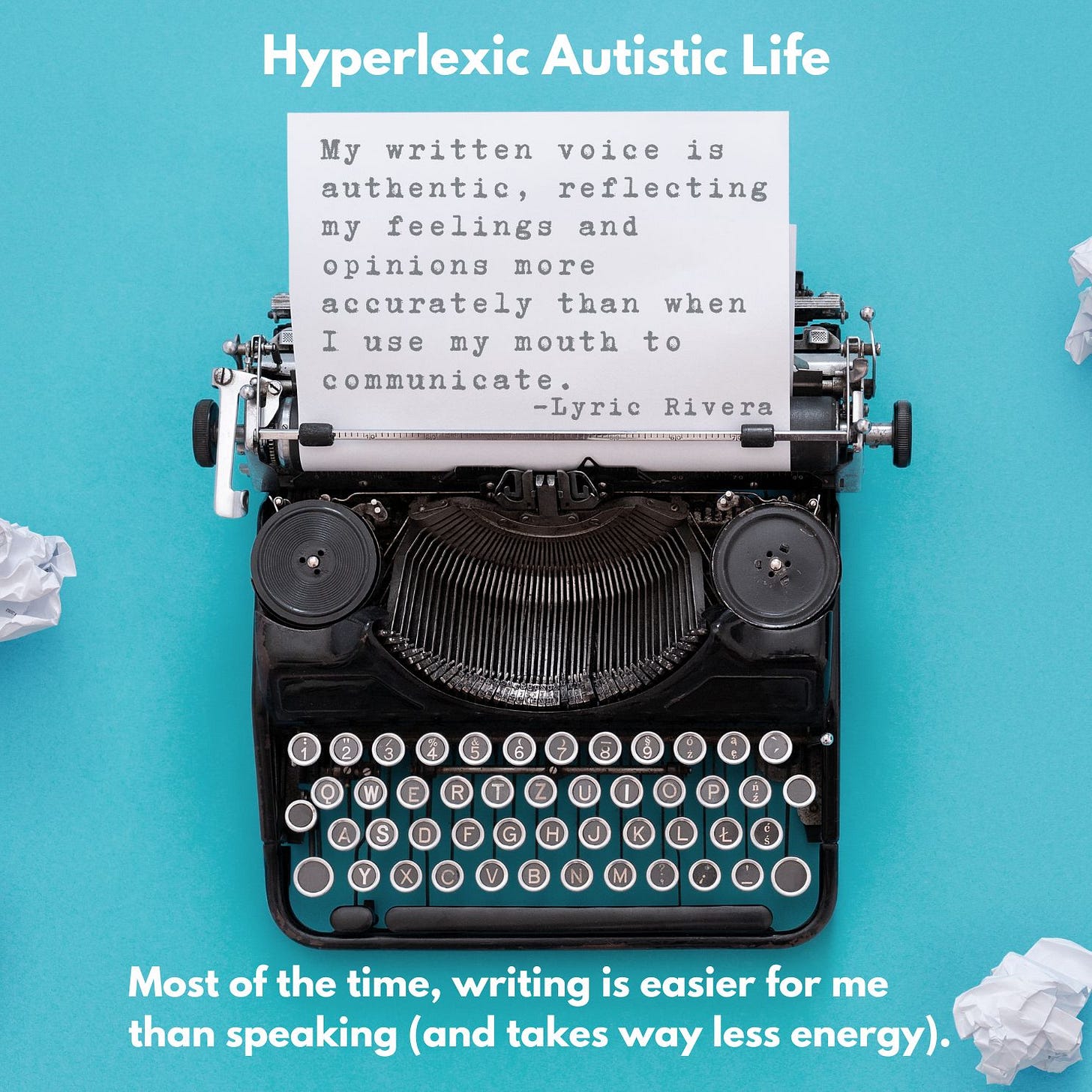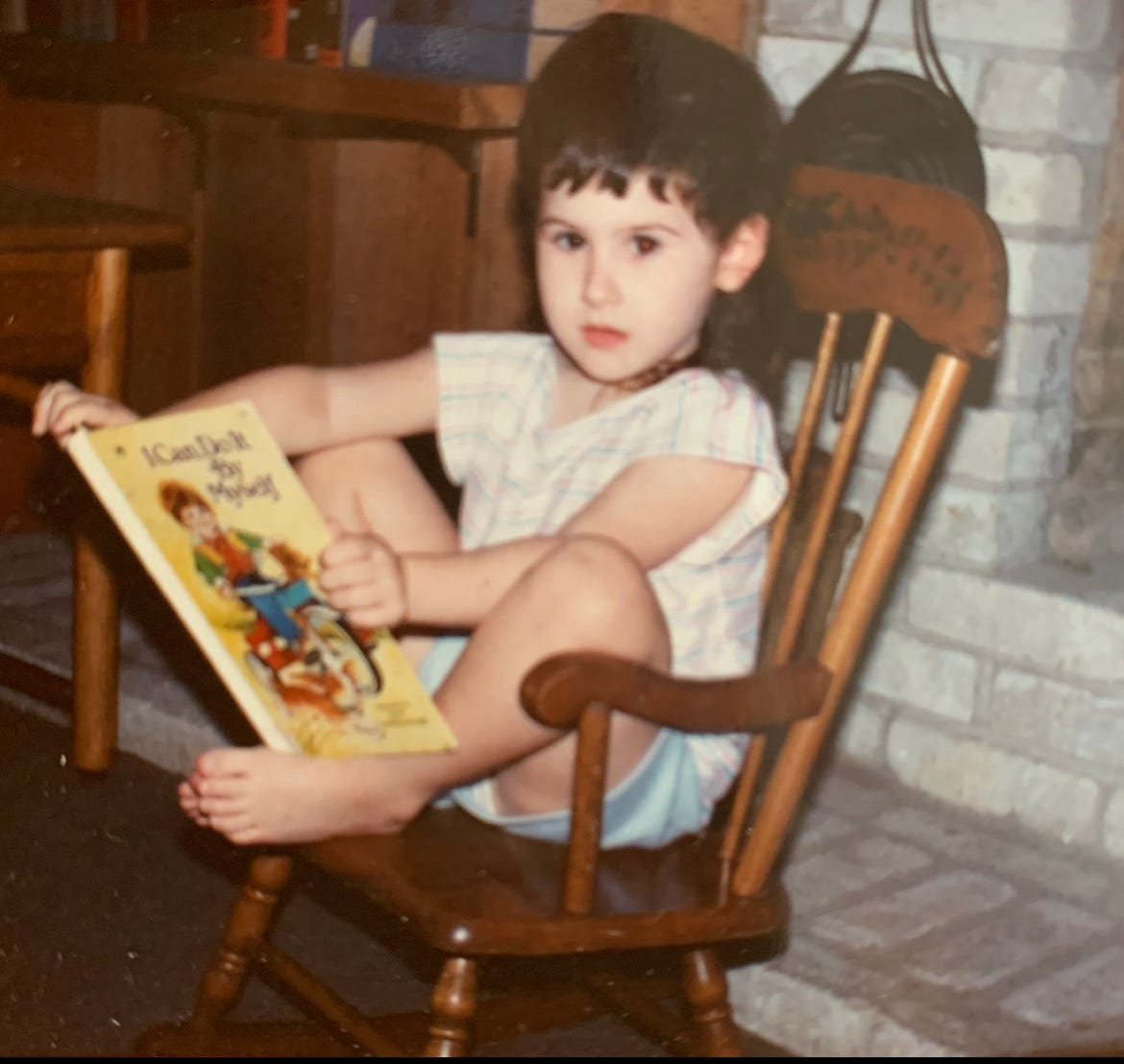Hyperlexic Autistic Life: Most of the Time, Writing is Easier for Me than Speaking (and takes way less of my energy)
Writing IS my language; it is more natural (to me) than speaking. My written voice is authentic, reflecting my feelings and opinions more accurately than when I use my mouth to communicate.
Earlier this week, David asked me how I pick my 2-3 weekly topics to cover on Substack (and all the other writing pieces I create in my "day job" for the various publications I'm a part of).
David, who is NOT hyperlexic (like me), has an aversion to reading and writing, and for anyone who struggles in this area, I see how one could wonder about a person like me, who sometimes writes 6-10 thousand words a week (or more).

Hyperlexia is one reason I write:
Writing IS my language; it is more natural to me than speaking in many ways. My written voice is authentic, reflecting my feelings and opinions more accurately than when I use my mouth to communicate (unless I'm reading scripts I've memorized or prepared).
My spoken comprehension and abilities have always been far lower than my reading and writing abilities. (However, the gap between the two is much smaller and less noticeable than when I was a kid.)
The depths of my knowledge are poorly showcased via spoken communication, but I can share everything clearly in a written essay format (when people allow it).

ADHD is another reason I write:
My ADHD (and the resulting executive functioning difficulties) makes it hard for me to keep track of points I'm trying to make when I'm speaking (without written notes or about a memorized topic).
I often forget what I was saying mid-conversation and can get confused about if I've said things I wanted to say already or not.
Communicating in writing allows me to get all my thoughts out, linearly organize them (because my thoughts come out in a messy pop-corn dumped all over the floor manner), and then scrub the duplicate thoughts so I'm not repeating myself over and over again, leaving me with a clear, coherent communication - something I struggle with (especially if I'm explaining something complex).
Visual Thinking is another reason I write (because many of the things I know I know without having words for what I know).
I can see what I know. Writing allows me to find words for something I know (because I can see it) but haven't tried to explain yet. It is a way to find language for the concepts in my mind, translating them from visuals to words people around me can grasp.
External Processing is another (and probably one of the MAIN) reason(s) I write.
Writing also helps me, a visual thinker, to wrap my head around complex concepts that aren't visual (like my feelings, pain, trauma, and emotions) - so they're not STUCK in my head.
Writing for me is very therapeutic, and "getting it all out" can be (and often is) cathartic.
For these reasons, writing a one to two-thousand-word blog post is more accessible (for me) than shooting a similar (or shorter) length video.
Paid subscribers have access to the full post as a thanks for their support of my work.
Keep reading with a 7-day free trial
Subscribe to NeuroDivergent Rebel’s Substack to keep reading this post and get 7 days of free access to the full post archives.



